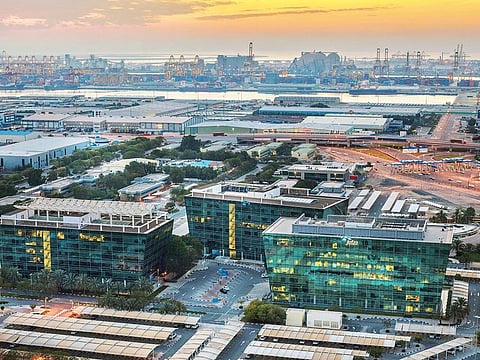Dubai’s warehouse and logistics real estate is making deals happen, with lots of help from ecommerce
Manrre Logistics expects to close 2022 with assets of $100m without too much sweat

Dubai: Ecommerce has done wonders in shifting the dynamics in Dubai’s retail space – it is now doing much the same for industrial real estate assets too. Anything to do with warehousing which can fit the needs of ecommerce is hot property with investors.
“Any warehousing or logistics space that comes with average ongoing 3-5 years leases – or even longer – is what’s finding buyers,” said Kunal Lahori, CEO of Manrre Logistics Fund, which over the last three years has snapped up $71.3 million in such assets, all of which being in Dubai. Recently, it capped that sun sealing a deal with Amazon, in what is the ultimate stamp of approval when it comes to warehousing leases. (Dubai World Central was the other partner in the structuring of the transaction.)
“By year-end, we should touch $100 million in fud size – demand is not about to run out any time soon. There is a lot to believe in the Dubai ecommerce story, which makes up only 8 per cent of the overall retail sector. Yes, it is growing at 50 per cent. Compare that to the 15-18 per cent growth in ecommerce in the US or Europe. That’s why demand for ecommerce-linked warehousing will only increase.”
New logistics hubs
Jebel Ali Free Zone is developing additional logistics capacity, which will come on stream in the next two years, while new-to-the-market Dubai CommerCity is casting itself as the hub for ecommerce businesses and all their sundry needs. Dubai South has its own ecommerce focussed cluster, and growing with each new big signing.
And there’s plenty of leasing action taking place even outside of ecommerce needs. Last year, Cars24, a preowned buy-and-sell platform for vehicles, took up space in Jebel Ali Free Zone in what was one of the biggest such leases in Dubai to date.
Costing more
Some in the local property market say that industrial assets were the first to recover after the COVID-19 breakout and the subsequent drop-off in the pandemic’s intensity. Again, the need to fulfil the widening base of online shoppers and to stock up for them was what drove demand – and values – warehousing space. Even as early second-half 2020, this type of real estate had ready buyers and tenants in Dubai.
Prices have gained since then, and Lahori is well aware of these shifts. “The best way to counter such asset price increase is to enter into structured transactions that offer a stable RoI (return on investment) of 8.5-9.5 per cent. Rents too are also going up. We will not enter a deal if the return profile is anything less than 7-7.5 per cent.”
In recent months, Manrre – which is led by Dubai-based Palmon Group – has roped in additional investors, including high networth individuals and family offices from the Gulf. The fund lists 24 properties as of now, with the average leases between 5-10 years. The costliest asset among the lot was bought for Dh50 million and leased for 10 years to the data management services company Iron Mountain Solutions.
As for looking to invest outside of Dubai, Lahori said: “We are location-agnostic – but we need to find the right asset in the right location and with those 5-10 year leases backing it,” he added.
Transition to REIT and IPO
It will be another three years minimum before Manrre Logistics Fund makes the cut to being a full-fledged REIT (Real Estate Investment Trust) and with an IPO to back it. “For an IPO, we need to reach a certain size for the fund,” said Kunal Lahori, CEO. “For now, there is new interest in Dubai as businesses go for growth in the post-Covid era. That’s what we need to be in – the IPO can wait.” On DFM, the REIT from Al Mal Capital was the previous one to take the IPO route, which it did in early 2021.
Sign up for the Daily Briefing
Get the latest news and updates straight to your inbox



